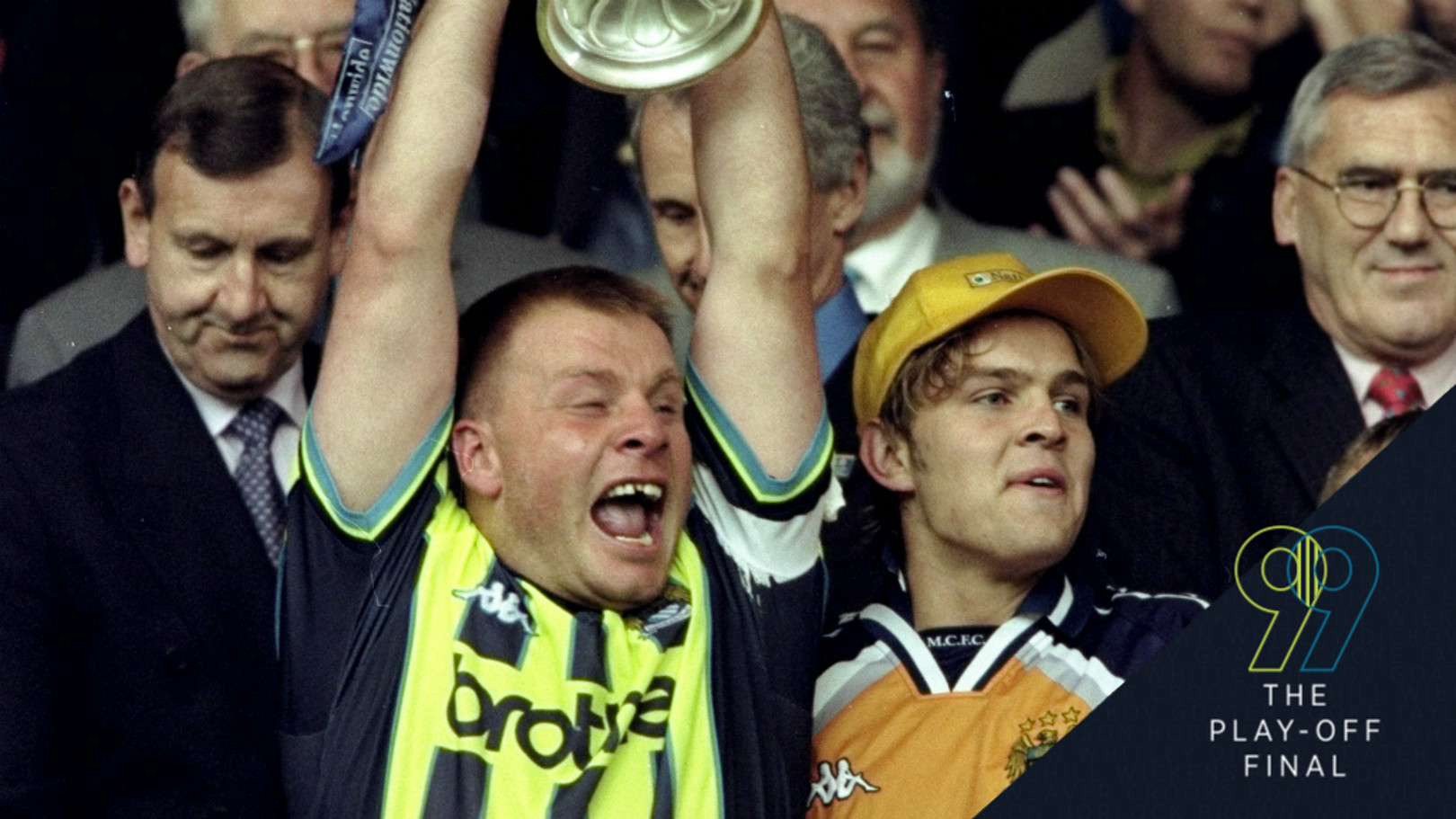Manchester City fans will attest to that.
A true leader and indescribably influential in the side that won the Division 2 playoff final twenty years ago, Morrison played with a ferocious determination which resonated with supporters.
But for all that, he willingly admits how reluctant he would have been to take a penalty on that fateful day at Wembley two decades ago.
Fortunately for Morrison, it wasn’t his choice.
Joe Royle withdrew his captain, who was carrying an injury, twenty minutes before Carl Asaba scored for Gillingham to kick-start the most dramatic of season finales.
“If I’d been playing I wouldn’t have put my hand up,” he revealed.
“Not a chance. If the gaffer had asked me, if Joe had said I need you take one, of course I’d have taken one reluctantly.
“I would not put my hand up. I just know how I am as a person and how it would have affected me.
“I could score a million goals and there would have been no reward. If I missed one penalty it would have been catastrophic for me.”
As it transpired, City sidestepped catastrophe and embraced jubilation.
But getting there was heat-wrenching, particularly for Morrison, who had galvanised the team following his mid-season arrival, but was forced to watch the most important moments of the campaign from the sideline.
The Scot had dared to dream he would lead his team up the famous Wembley steps and but saw it evaporating before his eyes as Robert Taylor added Gillingham’s second.
“Anger wasn’t the emotion,” he explained. “It was sadness.
“It was always a dream to go to Wembley and walk up the steps, and to walk up the steps as a captain. And to actually feel as the game went on, that that’s gone.
“You’re just completely deflated.”
Deflation had morphed into elation by the time Morrison was chasing Nicky Weaver across the Wembley turf.
The skipper was the man who managed to bring the stopper to a standstill in a moment that will stay with him forever.
“Only football can create that,” added the 48-year-old.
“You can’t recreate that in a plastic way it has to be authentic, it has to be real.
“I’ve seen what football can do and that’s why the game is loved the way it is. You’d go a whole season without being paid to feel those emotions the way you do at the end of the season.
“You can’t put a price on it. It’s quite remarkable and it stays with you for the rest of your life.”







